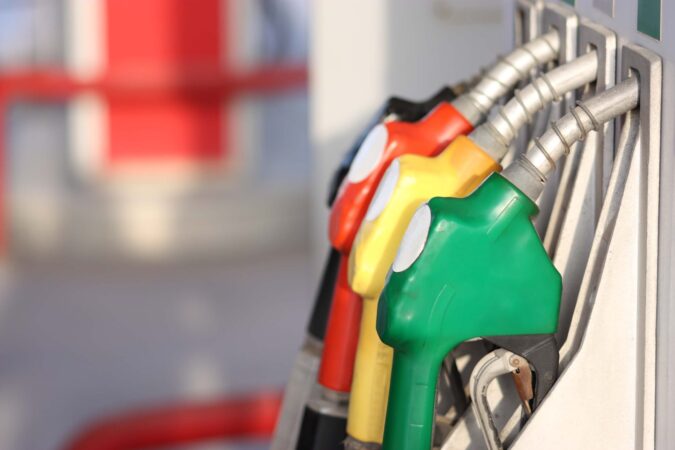Most drivers use their cars every day. Therefore, it is not surprising that they spend hundreds of euros on fuel every month. In some cases, people spend as much money on fuel as they do on rent or food, and with fuel prices skyrocketing, the situation is getting out of control.
Matas Bozlis, an automotive expert at carVertical, recommended some simple habits and solutions that can help significantly reduce fuel costs.
1. Drive slowly
Fuel consumption increases significantly when driving aggressively, with strong acceleration and sudden braking. Scientific research shows that aggressive driving style can reduce fuel efficiency by 40%.
Avoiding sudden acceleration and using gears to brake is a simple way to save. Aggressive driving habits rarely save more than a minute or two per trip, which isn't worth the extra fuel consumption. Moreover, driving slowly also helps maintain your engine, tires and suspension.
2. Reduce air conditioning consumption
Modern car climate control systems often leave the air conditioner running even when it is not needed. The air conditioner compressor is a powerful unit and increases fuel consumption by up to 30%.
Air conditioning systems are very comfortable on hot summer days and rainy fall days because they cool and dry the air at the same time. However, they should be used in moderation to save fuel.
3. Check tire pressure regularly
All car manufacturers calculate the ideal tire pressure for each model, which is essential for optimal performance, comfort, safety and fuel efficiency. Underinflated tires provide more rolling resistance, causing the engine to use more fuel to maintain speed.
Therefore, it is a good idea to check your tire pressure regularly (at least once a month). According to several studies, every 1% decrease in tire pressure is associated with a 0.3% decrease in fuel efficiency. However, the experts at carVertical warn that it's dangerous to keep your tires over-inflated – high pressure can lead to uneven and premature tire wear.
4. Reduce unnecessary weight
Fuel consumption increases depending on the weight of the car (after all, more energy is needed to move a heavier car). Therefore, to reduce the weight of the car to a minimum, automotive engineers get rid of the spare wheels and replace steel with aluminum or plastic.
The car should not be a warehouse. Removing unwanted and heavy objects makes the car more economical, agile and spacious.
5. Avoid traffic jams
It's important to get into the habit of avoiding traffic queues whenever possible. Constant stopping and starting puts stress on the engine, suspension and gearbox. One of the reasons why city driving is considered less economical is traffic jams. It is often more convenient to choose a longer route with less traffic.
You can save a lot of fuel and time by avoiding peak hours. In most cities and towns, this phenomenon occurs between 7:00-9:00 and 16:00-19:00.
6. Plan trips in advance
Another reason short-haul drivers experience worse fuel economy is that engines consume more fuel when they're not warmed up. The motor must heat up (just like the human body) – so overvoltage without heating will damage several parts.
It is best to carry out as many tasks as possible in one trip. It is more beneficial than making multiple trips throughout the day. Furthermore, using cruise control when driving outside the city prevents excessive acceleration and braking, resulting in better fuel efficiency.
7. Choose a fuel-efficient car
In many cases, purchasing a car that consumes less gas is a great starting point. Heavy SUVs and executive sedans will never be as economical as more modest and more compact family models. For those who drive mainly in the city, any car that can transport people and luggage may be sufficient.
International car history verification platform, 'carVertical', recommends buyers check the general condition of any vehicle before making a payment. Typically, intact vehicle history verifies its condition and allows you to save fuel and avoid repair costs.
8. Take good care of your car every day
People often forget the fact that the condition of the vehicle plays an essential role in fuel efficiency. Items such as the engine, suspension, and electrical systems affect fuel consumption. For example, a faulty oxygen sensor can double your fuel consumption. Therefore, ignoring regular car maintenance should not become a habit.
Regardless of fuel prices, saving allows for a more comfortable life. Often, all you have to do is change some driving and maintenance habits to save money and have a better experience with your car.

“Writer. Analyst. Avid travel maven. Devoted twitter guru. Unapologetic pop culture expert. General zombie enthusiast.”

